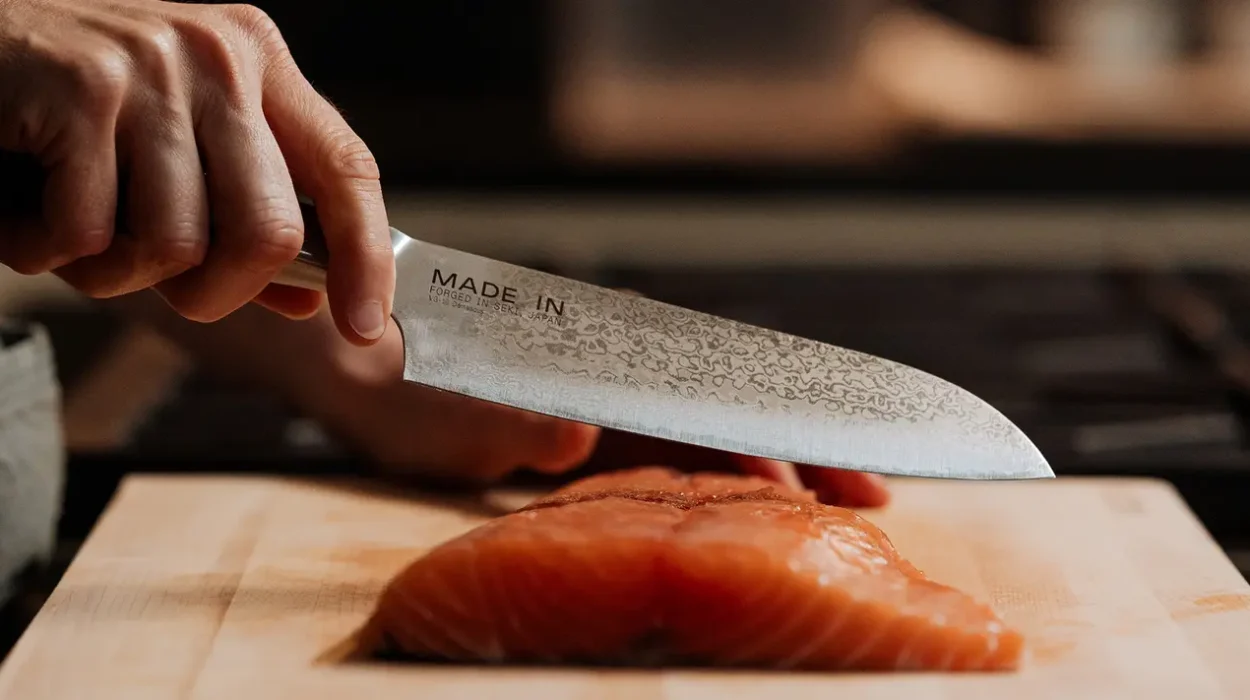When it comes to culinary excellence, having the right tools is essential. Among these, German knives are renowned for their precision, durability, and craftsmanship. However, using these sharp instruments requires a keen awareness of safety. In this article, we’ll explore German knife safety tips to ensure that your kitchen experience remains enjoyable and accident-free.
Understanding the importance of German knife safety tips is crucial for anyone who regularly uses these powerful tools. Whether you’re a professional chef or a home cook, knowing how to handle and maintain your knives can make a world of difference in your culinary journey.

Why German Knives are a Cut Above the Rest
Before diving into safety measures, it’s important to understand why German knives are held in such high regard. Known for their exceptional quality, these knives are crafted with precision and attention to detail. Their durability and sharpness make them a favorite among chefs and culinary enthusiasts alike.
Choosing the Right German Knife for Your Needs
Understanding Different Types of German Knives
German knives come in various types, each designed for specific tasks. Understanding the differences between chef’s knives, paring knives, and bread knives can help you select the right tool for your needs. For more on this, check out German Knife Sets for Beginners.
Considering Handle Ergonomics
The handle is a critical component of a knife’s safety. Ergonomically designed handles provide a comfortable grip, reducing the risk of slipping. Learn more about this in our article on German Knife Handle Ergonomics.
Essential Safety Tips for Handling German Knives
Proper Grip and Posture
Maintaining a proper grip and posture while using a knife is fundamental. Hold the knife firmly with your dominant hand and keep your fingers away from the blade’s edge. This not only ensures precision but also prevents accidents.
Keeping Your Knives Sharp
A dull knife is more dangerous than a sharp one because it requires more force to cut, increasing the chance of slipping. Regularly test your knife’s sharpness, and refer to our guide on how to test German knife sharpness.
Safe Storage Practices
Proper storage of knives is essential to maintain their sharpness and prevent accidents. Consider using a knife block or magnetic strip to keep your knives organized and out of reach of children.
Using the Right Cutting Surface
Always use a cutting board made of wood or plastic. Hard surfaces like stone or glass can damage the knife’s edge and increase the risk of slipping.
Maintaining Your German Knives
Regular Cleaning and Care
After each use, wash your knives with warm, soapy water and dry them immediately. Avoid putting them in the dishwasher, as this can cause damage over time.
Periodic Professional Sharpening
While honing can maintain a knife’s edge, professional sharpening is required periodically to restore its sharpness. Consult a professional to ensure your knives are in optimal condition.
Advanced Safety Techniques for Professionals
Mastering Knife Skills
For those who are serious about their culinary craft, mastering knife skills is essential. Techniques such as the claw grip and rocking motion can enhance precision and safety.
Understanding Knife Balance
A well-balanced knife offers better control and reduces fatigue. Experiment with different knives to find the one that feels right in your hand.
Traveling with German Knives
Safe Transportation Methods
When traveling with knives, ensure they are securely packed to prevent injuries. Use a knife roll or blade guard for added protection. For more tips, visit our article on how to travel with German knives.
Legal Considerations
Be aware of the legal regulations regarding knife transportation in your area. Some regions have strict laws that must be adhered to when carrying knives in public.

FAQs on German Knife Safety Tips
What should I do if I cut myself with a German knife?
Immediately clean the wound with water and apply pressure to stop bleeding. Seek medical attention if necessary.
How often should I sharpen my German knife?
Regular honing should be done before or after each use, while professional sharpening is recommended every 6-12 months, depending on usage.
Can I use my German knife for cutting through bones?
It’s best to avoid using German knives for cutting through bones, as it can damage the blade. Use a cleaver or specialized bone-cutting knife instead.
For those interested in learning more about the craftsmanship and origins of German knives, check out this informative article on German knives.
This article contains affiliate links. We may earn a commission at no extra cost to you.


